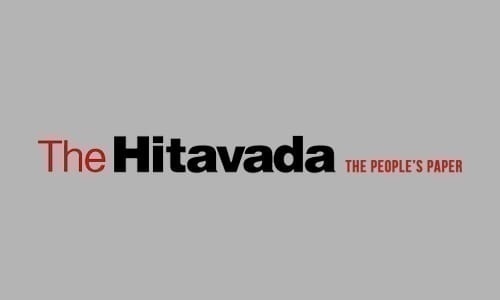Festival Of Democracy !
| Date :20-Apr-2024 |

By Vijay phanshikar
“I know, the spirit of the Indian voters will beat the summer heat ...!”
- Rajiv Kumar,
Chief Election Commissioner
of India
THIS confidence also marks the minimum expectation from the people when the country is engaged in what is fondly described as ‘Festival Of Democracy’. In a country as vast as India, season changes every hundred kilometers. If there is a terrible dry summer in one place, there also are floods in some other part of the country, not speak of the cold weather in the reaches of the Himalayas extending from North to North-East. Yet, the festival democracy must be celebrated every five years or as the need is. Yet, it is only natural for the Chief Election Commissioner to express a confidence that the people would turn up in big numbers -- no matter the raucous summer -- to cast their vote and choose their own representatives in the Lok Sabha as well as Vidhan Sabhas in a few States. And this confidence is borne by the fact that in vast areas of the country, people really turn up in great numbers and exercise their franchise -- which has been happening without fail for the past 75 years since Independence.
It must be admitted, though, that in many parts of the country, the voting percentage is pretty low in comparison to that in other areas. While some areas record voting percentage as high as 90-plus, some other areas barely cross 50 per cent in voting numbers.
Because this has been a matter of concern, officials keep making efforts to enthuse people to come out of their cosy homes and cast votes in elections.
But the fond term ‘Festival of Democracy’ has its own poetic importance to the larger Indian society. It has a historical background as well. For, when India became free in 1947 and chose the principle of universal adult franchise for elections, many skeptics around the world wondered if the newly freed country could really transform itself into a democracy instantly. Over time, that initial doubt has been proved totally wrong.
The world now expresses open surprise about the democratic credentials of the larger Indian society -- where the overall literacy rate had been terribly low. No matter low literacy, the common people of India proved right the confidence the Founding Fathers of the Constitution of India had in the people. ‘No matter low literacy rate, we believe that each person must get one vote irrespective of caste, creed, religion, political leaning, ideology, gender. Every Indian will cast his or her vote to choose people’s representatives at all levels,’ speaker after speaker in the Constituent Assembly had asserted. Each of those visionary speakers today stands vindicated.
Of course, there are people who love to describe Indian democracy as a chaotic system.
But those who have understood the quintessence of democracy say without fuss that the chaos may even be described as pluralism, so to say. This is not a cosmetic poeticism, though. Factually, this is the reality of Indian democracy in which every shade of opinion gets expressed, no matter how immature or shallow, no matter how lop-sided or apparently blind in faith. Those who understand the core value of democracy are never afraid of or worried about the so-called disorderly system.
This is the actual meaning and purpose of the festival of democracy, that is election. Looked at from a long-range point of view, the so-called chaotic system actually presents a wonderful opportunity to everybody to express his or her view on issues of national importance -- and vote accordingly as per individual belief.
Though democracy exists in many countries, the people the world over appreciate the Indian elections for the simple reason that Indian people were described by many critics as backward and unable to make right political choices.
All those doubts stand nullified today, thanks to the mature manner in which the common Indian people have used their vote as a tool to socio-economic and political transformation. The consistency of this successful implementation of the democratic idea and ideal has amazed the whole world.
It must be stated here that elections alone do not mark the festival of democracy. The elections are only a symbolism through which Indian democracy operates on practical ground. But prior to actual elections, the whole country starts getting geared up for the voting process well in advance. People in power start pulling up their socks and getting ready for the final act of polling. Those who are not in power also start girdling up for the big fight every five years. This often ensures that the people seeking votes continue to conduct themselves with a great sense of responsibility to common people of India.
This is in essence the continued and extended festival of democracy -- beyond elections, beyond propaganda, beyond cheap political tactics for more (and mere) votes. This very thought has its own elevational power.